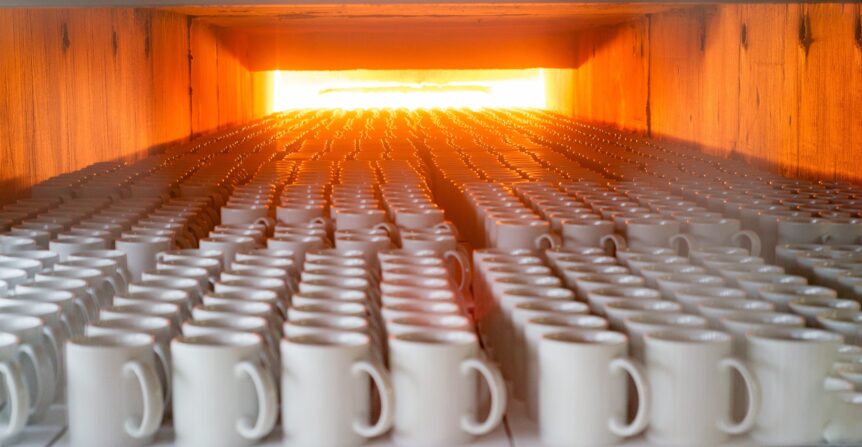In October, Meva Energy will present how biogas produced through its biomass gasification technology can help IKEA’s ceramic and glass suppliers to reduce their carbon emissions.
As part of the world’s most energy-intensive sectors, ceramics and glass production contributes substantially to carbon emissions, particularly by using fossil gas-fired kilns. With growing global and European commitments to reducing greenhouse gases and meeting climate goals, including the EU’s target of net-zero emissions by 2050, the ceramic and glass industry faces increasing pressure to decarbonize.
Biomass gasification is a energy-efficient process already used in the industry, that converts locally generated low-value biogenic waste into renewable biogas. The gas is directly used in industrial applications, replacing fossil fuels such as LPG or natural gas. The gasification process also produces biochar, which is currently the largest existing carbon removal technology.
Meva Energy has already established a successful partnership with IKEA Industry and are now in the middle of building an energy plant for supplying renewable energy to IKEA Industry’s largest furniture factory in Poland. In October, Meva Energy will present how biogas produced through biomass gasification can help decarbonize the ceramic and glass industry to IKEA and its suppliers. The goal of this presentation is to expand the existing collaboration by demonstrating how biomass gasification technology can be applied specifically within the ceramic and glass sectors.
“Leveraging the learnings from using our technology to replace fossil gas in tissue drying into other energy-intensive sectors, suchs as ceramic and glass, we can contribute further to the decarbonization of manufacturing industry.” – Thomas Bräck, Business Development Director at Meva Energy
Why it is important
The ceramic and glass industry plays a central role in Europe’s infrastructure and economy, providing essential materials for sectors ranging from construction to manufacturing. But the industry currently facing challenges to decarbonise due to its reliance on fossil fuels, particularly natural gas, as the main energy source for production. Gas-fired kilns which is essential for manufacturing needs a stable and constant supply of energy to operate effectively.
Continued dependence on fossil not only increases operational costs due to fluctuating energy prices but also exposes the industry to potential regulatory penalties as governments require stricter environmental policies. At the same time, the ceramic industry is a key player in other sectors, meaning that its progress in decarbonization will also benefit broader parts of the industrial ecosystem.
Image: The image shows a traditional ceramic and glass production facility, emphasizing the energy-intensive kilns that contribute to carbon emissions and highlighting the need for sustainable solutions like biomass gasification.

